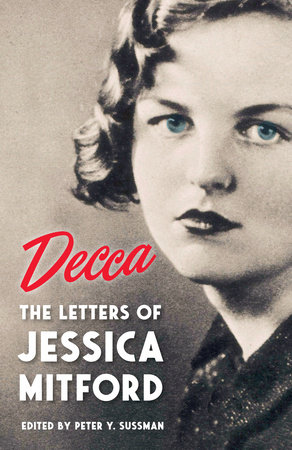

Decca
By Jessica Mitford
Edited by Peter Y. Sussman
By Jessica Mitford
Edited by Peter Y. Sussman
Category: Essays & Literary Collections | Biography & Memoir

-
May 19, 2010 | ISBN 9780307565662
YOU MAY ALSO LIKE
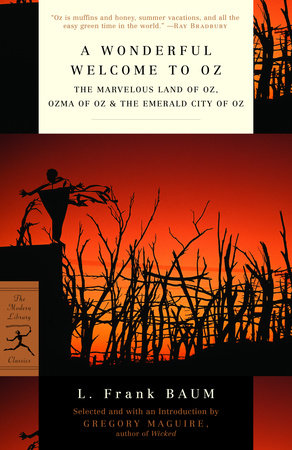
A Wonderful Welcome to Oz

The Essential Writings of Machiavelli
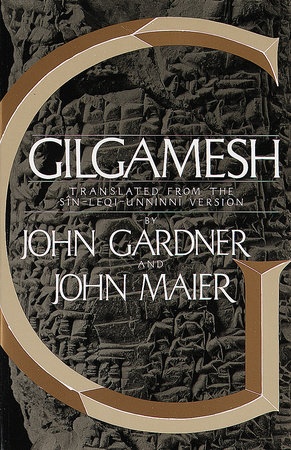
Gilgamesh
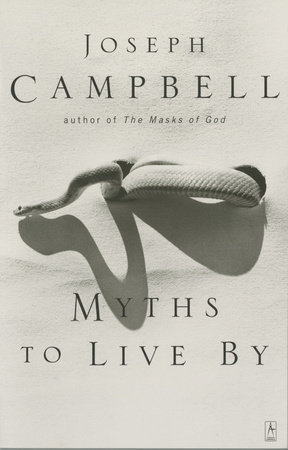
Myths to Live By
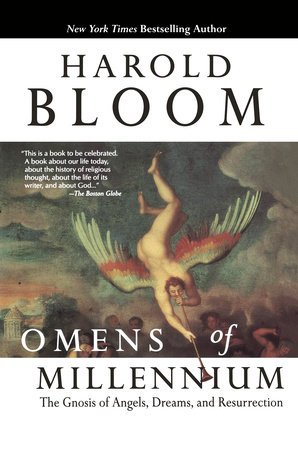
Omens of Millennium
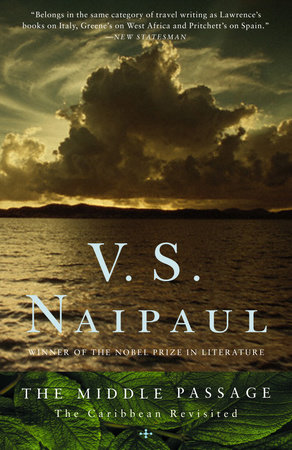
The Middle Passage

Where Shall Wisdom Be Found?
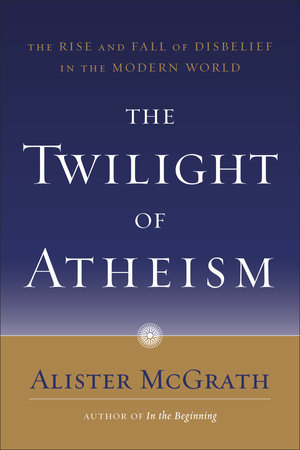
The Twilight of Atheism
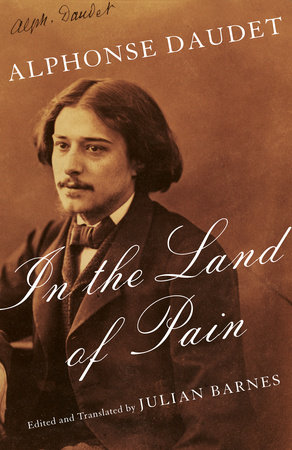
In the Land of Pain
Praise
“Decca, a collection of [Jessica Mitford’s] letters that spans sixty years, is not only a portrait of an intrepid, humorous and affectionate woman, but a look at class and politics through the eyes of someone to whom good writing mattered and intimacy mattered even more . . . . Decca was a natural letter writer . . . [and] she wrote constantly . . . Her letters, in which memories of the past and particularly her childhood returned again and again, are direct, full of energy and laughter. They pursue feuds, especially with her sisters, from whom, despite their differences, she never disengaged herself . . . Forthright, determinedly honest, she was nevertheless too passionate to be chilling . . . [It] is impossible not to reach the end [of this collection of letters] without great admiration–for a life so generously and humorously led, in which injustices and causes really mattered, and in which happiness, love and friendship played such an enormous part.”
–Caroline Moorehead, Times Literary Supplement (UK)
“Although it is not uncommon for big families to produce a rebel or two along with the chip-off-the-old-block offspring, there are few that can lay claim to as much dissension within the ranks as the aristocratic clan of Mitford . . . Of these exotic renegades, none was more proud of going against the grain than Jessica [Mitford], black sheep who flouted everything her virulently xenophobic parents stood for by embracing communism over Blue Bloodism and then, adding insult to injury, the United States over England . . . . These letters are rarely less than amusing, colored by salubrious scorn for the pieties and deceit of the status quo and marked by Decca’s gimlet eye for the maliciously telling detail . . . [It’s] impossible not to be drawn in by Decca’s spiky charm and disarming curiosity, which remained with her to the end . . . [In] a world that seems to grow ever more homogenized, it is refreshing to encounter a one-of-a-kind character . . . [Who] among us doesn’t nurture a feisty inner imp, intent on having the last laugh?”
–Daphne Merkin, Slate magazine
“Decca is a wonderfully rich and varied collection [of letters]. Far better than [Jessica Mitford’s autobiography], Hons and Rebels, it brings together the extremes of her two worlds: the English aristocracy of her birth and postwar American radical politics. Conflict and displacement, strong family affections and an even stronger urge to rebel against her class and upbringing are recurring themes. Her passionate commitment to social causes, especially the civil rights movement in the US, make Decca the most sympathetic member of the famously eccentric Mitford family. She shared the comic sense of her novelist sister Nancy. Both were brilliant letter writers, open, direct, funny, sharply satirical. But because Decca’s life was more varied, more open to experience, than Nancy’s, her letters are more satisfying . . . . Mitford’s letters include glimpses of the Kennedys, LBJ and Ladybird Johnson, the Clintons, Princess Margaret, Gore Vidal, John Kenneth Gailbraith, Julian Huxley. Never a name-dropper, she mentioned them only when there was a good story to tell . . . The mixture of the personal and political enlivens the Mitford letters, especially those between the sisters . . . [On] the whole, the comic spirit prevails in this large, well-edited and generous volume of her letters.”
–Brenda Niall, The Age
“To read artfully composed letters can be more than a sentimental reminder of the loss of pen and paper; where private correspondence has been made public, it’s an entrance into a state of mind where you weren’t originally invited. [Jessica Mitford was a master] of [the] form . . . . Decca reads like an autobiography . . . Sussman does a fine job of stepping back and letting [Mitford] speak for herself in the letters he culled from the thousands she sent over 60 years’ time. And like a gracious hostess, her voice unparalleled, Mitford ferries the reader along, bounding with verve and spiking her correspondence with invented words from the secret language she shared with her sisters, from whom she was physically divided by an ocean and socially separated by the politics of an age . . . . We turn to art to indulge in and be reminded of the things our lives are lacking. Letters of the kind Mitford wrote are by this definition art.”
–Amanda Witherell, San Francisco Bay Guardian
“[Jessica Mitford’s] letters have been gathered into a book that offers a moving and intimate look at the most famous member of the eccentric and engaging Mitford family . . . [Editor] Peter Sussman has divided the letters into nine chronological sections, each with a hugely entertaining biographical introduction . . . [Mitford’s letters] reveal a vulnerable woman, a woman at times shattered by loss, yearning for approval from her successful sister Nancy, puzzled by her relationship with her mother, yet always ready to fight for an important cause. But mostly they reveal the truly remarkable character of Decca herself. She was funny, passionate, clever, idealistic, pragmatic, and, in an odd way, intensely romantic. That luminous personality is captured in the hundreds of letters she wrote to friends, family and enemies, compiled here to evoke a true 20th-century original.”
–Joanne Sasvari, The Calgary Herald
“Tina [Brown] did me a big favor at year’s end. She sent along [Decca], put together by Peter Y. Sussman . . . I was pleased to discover myself mentioned . . . Never thought I’d find myself in the rarefied Mitford aura.”
–Liz Smith, The New York Post
“[A] fine, funny collection.”
–Kathleen Byrne, The Globe & Mail
“[Decca is a] marvelous collection of letters, excellently edited and annotated by Peter Sussman . . . Of course, there are stories [in it] that are priceless. Suddenly the reader is privy to the kind of inside scoop that only family would have.”
–Martin Rubin, The Washington Times
“No doubt about it: Jessica Mitford had one hell of a life . . . And yet by far the most interesting thing about Decca, as in anything written by any one of the six Mitford sisters, is her voice . . . [The] most remarkable thing about Jessica’s style, even half a century after her self-exile from England, is how consistently it draws on the deep reservoir of familial experience . . . [It] creates a kind of linguistic space where the irony is so super-subtle that it sometimes escapes detection, where anything can be said, or conspicuously not said, and where the people one loves most fiercely can be ripped into pieces without ever compromising the ties of kinship . . . Peter Sussman’s absorbing compilation is full of this kind of thing . . . [The] best parts of the book take in her deeply ambivalent relationships with her sisters.”
–DJ Taylor, The Independent (UK)
“This book is for those long winter days and nights. Decca is a wise and witty woman who writes wonderful letters to her friends . . . If you enjoy reading well written, interesting letters, an art that has been lost to e-mail and text messages, you will enjoy these.”
–Ruth Mountaingrove, Senior News
“For anyone who has feasted on [Jessica Mitford’s] books and those of her sister Nancy, Sussman’s exquisitely compiled collection is a rich dessert.”
–The Vancouver Sun
“Most of [the Mitford] children–a brother and six sisters–became independently famous . . . Over the years, their wildly divergent lives–and, more significantly, the syntheses of those lives in print–gave rise to what we now call the Mitford mythology. Jessica, the second youngest, kept her end up. One thing–perhaps the only thing–that all the Mitfords shared was charm and it breathes through every letter: a certain extravagance of expression, combined with fearlessness towards outside opinion . . . Fantastically entertaining.”
–Amanda Hooton, Sydney Morning Herald
“Witty, literate, honest to a fault. Mitford the writer surfaces in Mitford the correspondent. Decca’s correspondence reverberates down through the years. And editor Sussman’s object–saving it from ephemerality via collection in this volume–is an unmitigated success.”
–Douglas J. Johnston, Winnipeg Free Press
“[These are] exuberant and take-no-prisoners missives to the world . . . [In them, Decca] was always herself: that is, a fumy maker of fun at other people’s expense and, at the same time, loving and loyal to her family and friends . . . . [Decca lived a] double life, [which] meant that her letters reveal two separate and equally fascinating worlds, of the English aristocracy and American radical politics . . . The personality that emerges in these letters is that of a woman for whom everything is a tease, and at the same time deadly serious. She’s provocative, self-mocking, eloquent sometimes, silly, generous and brave . . . . Very well edited by Peter Sussman–his biographical essays and notes are invaluable in keeping track of this eventful life.”
–Diane Johnson, New York Observer
“Quite delicious . . . These letters are a treat: not so much a collection of correspondence as an extended conversation on which the reader is invited to eavesdrop . . . Decca [was] a supreme letter writer . . . . She was also brave, in journalism and in life . . . . [Jessica Mitford is] an example of what a woman can do once she has rid herself of, or at least decided to ignore, the expectations of others–family, men, society . . . That she is also a hoot is merely the icing on the cake.”
–Rachel Cooke, Observer (UK)
“The Mitfords were not so much a family as a tribe, with their own impenetrable private vocabulary, their own customs and even a ‘Mitford voice’ . . . and the reader encounters them with wonder. Those who have already made their acquaintance will want to proceed directly to the latest addition to the family canon: Decca, edited by Peter Y. Sussman, spanning more than 70 years of correspondence . . . Decca’s [letters] have the breathless, run-on ring of someone thinking outloud. The effect is entertaining and often moving.”
–Holly Brubach, The New York Times Magazine
“Yes, [Decca] is the size of a doorstep. But having read my way through it, I’m already wishing there was a second volume. Peter Y. Sussman is a sublime editor of one of the funniest, most enthralling and gloriously honest collections of contemporary letters I have yet read . . . . The revelations [here] make for spicily pleasurable reading . . . Decca’s sense of humour flows through her correspondence as brightly and dangerously as a fencer’s rapier. Here is a book to be savoured and revisited: impure and undiluted pleasure, from start to finish.”
–Miranda Seymour, The Times (London)
“Wonderful . . . Superb . . . If you don’t know about Decca, as everyone called [Jessica Mitford], just start reading this terrific collection of letters and hang on for the ride . . . On every page, she is right there–funny, smart, swinging hard, fiercely uncompromising . . . . [Editor] Peter Y. Sussman deserves the greatest possible praise and gratitude. His introduction, connecting essays and extensive notes supply all the biographical and historical information a reader needs. Being witty as well as scholarly, he is precisely the right guide through this life in letters of the most astonishing of the astonishing Mitford girls.”
–Michael Dirda, The Washington Post
“The letters [in Decca] are a treasure. Decca lived and battled by a pen that was as graceful and witty as it was sharp. Teeth were her means of propulsion, her wings; and the marks they left were singularly fine and even to be prized. She was, consummately, a happy warrior; in her letters, as in her books, she gets at her targets.”
–Richard Eder, The New York Times
“[A] deliciously readable collection of [Jessica] Mitford’s letters.”
–Edward Guthmann, The San Francisco Chronicle
“In his introduction to Jessica (Decca) Mitford’s letters, Peter Y. Sussman reflects on the nature of the genre: ‘Compilations of correspondence are necessarily biographies of a kind, biographies of individual consciousness, with less intrusive mediation and interpretation than one finds in a traditional biography.’ The idea of a biography of consciousness is intriguing. Letters are often less self-conscious than diary entries and more various. Most of us show a slightly different version of ourselves to each of our friends and family members, so there is good reason to believe that a collection of letters will net more personal nuances than their diary or biography. This is especially true of writers, [like Mitford] . . . . In 1960 Decca jokingly suggested I Led Three Lives as a fitting title for her memoirs: daughter of eccentric English aristocrats; US Communist Party organizer/civil-rights activist; and middle-aged author. Yet the letters collected here suggest strong continuities beneath the dramatic ruptures. Of central importance was the healing in Decca’s epistolary relationship with her mother . . . The letters show [a] remarkable transformation–slow , piecemeal and intimate. [Her] letters to her own daughter wonderfully complement the letters to [her mother] Lady Redesdale . . . Of the myriad fascinating and unexpected things that Decca’s letters reveal, it is her recovery from childhood resentment that moves me most.”
–Ruth Scurr, The Times of London
“Jessica Mitford has been my heroine since I was 14 years old . . . Decca gives us, as letters usually do, a much fuller picture of the writer than either of her own autobiographies, and I finished reading feeling even fonder and more admiring of her than before ([and] I named my first daughter after her). The letters span a life that was remarkable by any standards–the teenage aristocrat who fled England, eventually becoming a Communist in America; the runaway wife turned war widow who became a civil rights campaigner, campaigning journalist and, finally, author of the huge bestseller The American Way of Death, an exposé on the funeral industry. And this was quite apart from her membership of that band of prototype ‘It Girls,’ the Mitford Sisters . . . . Letters to, and about, her sisters will be the first many readers turn to . . . . [The] reader feels that guilty sense of eavesdropping which only the most disingenuous will pretend is not one of the greatest thrills of reading other people’s correspondence. Decca’s letters sing with the qualities that first made her so attractive to me. Incurably and instinctively rebellious, brave, adventurous, funny and irreverent, she liked nothing better than a good fight, preferably against a pompous and hypocritical target . . . . Peter Sussman has done a masterly job of editing these letters . . . His footnotes are exemplary, illuminating. By grouping the letters chronologically, dividing them according to periods, he manages to give unobtrusive form and structure to a life that was lived chaotically.”
–J.K. Rowling, Seven magazine / The Sunday Telegraph (UK)
“This is a fascinating, entertaining, illuminating and sometimes heartbreaking collection of letters, written by a woman who wielded a gifted pen and lived an extraordinary life. Jessica Mitford has been my heroine for twenty-seven years, and I finished this book proud of my own good taste.”
–J.K. Rowling
“Jessica Mitford . . . [a] cultural luminary . . . was known for her outspokenness and humor. Now, reading her letters, as edited by Peter Y. Sussman, she seems as alive and witty as ever. Colorful British expressions pepper Mitford’s voluminous correspondence. You can’t mistake her characteristic cattiness, either . . . . Her letters, written over six decades, provide a gloss on her marriages, her writing career and her roles as daughter, sister and mother . . . Sussman provides a useful biographical introduction, dozens of explanatory footnotes and illuminating prefaces . . . Stirring.”
–Jonah Raskin, San Francisco Chronicle
“In Decca, a lifetime of letters immortalize a shining intellect.”
–Liesl Schillinger, The New York Times
“Decca [is a] compilation of some of the best of [Jessica Mitford’s] letters . . . . [The book] reads like a novel, and it’s gossip of the highest order.”
–Martin Snapp, Contra Costa Times
“Born into an aristocratic British family with fascist tendencies, Jessica Mitford a.k.a. Decca Treuhaft or Dec, reinvented herself throughout her life, eloping to Spain at 19 with a second cousin who had fought against Franco in the Spanish Civil War, moving to America, joining the Communist Party and becoming a celebrated Oakland author in her middle age. Throughout it all ‘letter-writing was the life-line that held her many worlds together,’ wrote Peter Y. Sussman, editor of Decca . . . . The letters, which span her youth to her deathbed, bring out Mitford’s famous humor and edginess.”
–Judith Scherr, Berkeley Daily Planet
“A major collection of [Jessica “Decca” Mitford’s] letters should also be a major literary event. Decca’s constant public exposure meant that she knew just about everyone worth knowing. She was involved, directly or indirectly, with some of the twentieth century’s most momentous events, from the rise of Nazism through the Spanish Civil War to the civil rights movement in the southern states. Like [her sister Nancy Mitford], she was a devoted correspondent, with a wide circle of friends, a mischievous sense of fun, and a vast appetite for life . . . . [Decca: The Letters of Jessica Mitford contains quite a few] memorable chuckles [and] anecdotes . . . . The real hero of Decca is its editor, Peter Y. Sussman, whose running footnotes on Decca’s elusive friends and recondite allusions are a continual delight, and whose linking essays on the various stages of Decca’s career form [a] substantial and rewarding part of this . . . volume.”
–Peter Green, The New Republic
“For weeks, I have traveled in company with Decca: The Letters of Jessica Mitford, edited by Peter Y. Sussman. It has attended me everywhere, making its way from port to port around my house and out into the wide world. It now lies at anchor off my desk, and looking at it, I wonder, yet again, at the vastness of the body of published work that exists by and about the Mitfords . . . The first thing that people whose bookshelves aren’t listing under the weight of Mitfords ask when one of the sisters comes up is: Which one is she? In the case of Jessica . . . [she] is The American Way of Death one, the one who hauled up in the United States and was a member of the Communist party . . . She was, above all, an indefatigable civil rights activist, a great nuisance to those in power, and an embarrassment to polite people who consider their own prejudices representative of a certain niceness of feeling. And if she did not possess quite the streak of malice that makes her sister Nancy’s letters so entertaining to unkind people like me, she was tart enough, having a similar eye for the ridiculous and the same sense of epistolary festivity. The letters, which are equipped with first-rate footnotes, are excellently readable for a number of reasons. For one thing they contain a fiercely engaged person’s descriptions of social injustice, especially racial inequality, in the United States, primarily from the 1950s to the mid-1960s . . . As such these letters are exemplary historical documents. But they are also wonderfully entertaining expressions of what one might call sheer joie de lettres, that exhilarating delight that comes from going at a letter full tilt. The best of the letters are written to Mitford’s intimates. In them she, like all great letter writers, abandons the rigors of logical consistency, decorous transition, and sober composition. Instead parodic exaggeration, invention, and blithe characterization are given the run of the page.”
–Katherine A. Powers, The Boston Globe
“A reader of Decca, [Jessica Mitford’s] newly collected letters, can only marvel at such a lively spirit . . . Her letters are so full of comic set pieces, vivid narrative, and wonderfully replicated speech (including a whole page of parodic Southern palaver written out during a 1961 visit to [friends Clifford and Virginia Durr]) that one wonders why Mitford never tried writing a novel . . . One suspects . . . that the novel would have seemed too precious and artificial a form to such a lover of real-life rumpus and corrective action. Letter-writing, by contrast, always retained its element of practical urgency, even as it allowed Mitford to roar and entertain and make verbal equivalents of the faces she liked to make at the lectern in front of the flesh-and-blood crowds . . . Decca is a smashing accumulation, a buoyant offering atop the last wave of a literary form that now [has] disappeared into the electronic ether . . . . A week with her letters makes everybody else seem a bore.”
–Thomas Mallon, The New Yorker
“Of all the storied Mitfords, Jessica was the renegade, eloping at nineteen and becoming an activist. Edited by Peter Y. Sussman, Decca captures history’s most charming muckraker, from her friendships with Katharine Graham and Maya Angelou to her devotion to civil rights, which led to a subpoena to testify before the House Un-American Activities Committee–an experience she later listed under Honors, Awards, and Prizes on her résumé.”
–Vogue
“Her favorite drink is gin and tonic, her least favorite food, tripe. Her heroine is Jessica Mitford.”
–Geordie Greig, The Daily Telegraph (UK), in a profile of J. K. Rowling
“For a true appreciation of the character and style of Jessica Mitford, it is necessary to picture Lady Bracknell not only abandoning the practice of arranging marriages for money but also aligning herself with the proletariat, while still managing to remain a character in a Wilde play. The carrying cut-glass voice; the raised eyebrow of disdain; the stoicism born of stern ancestral discipline yet, withal, a lethal sense of the ‘ridic,’ as Ms. Mitford was fond of putting it . . . . Waugh-type debutante argot stayed in her speech and prose for life . . . Anything faintly nice is ‘bliss’; anything vaguely clever is ‘brill.’ Anything below par is ‘ghastly.’ Work in progress is ‘dread.’ The absolutely worst thing to be is ‘boring,’ or ‘a bore.’ . . . . Jessica Mitford was one of a clutch of children born to the eccentric Lord and Lady Redesdale . . . . In bold contrast [to her four famous sisters], Jessica eloped with a Communist nephew of Winston Churchill’s named Esmond Romilly, fled to Spain to support the Republican cause, and emigrated to the United States as the Second World War was approaching . . . Romilly enlisted in the Canadian air force and returned to Europe to fight . . . [and] his plane went down over the North Sea. [Her] second husband [was] Robert Treuhaft, a prominent ‘Red’ labor lawyer in the Bay Area . . . These themes–of kinship and class, flight from same, commitment to revolution, and stiff-upper-lippery in the face of calamity–recur throughout this assemblage of Jessica’s correspondence . . . . She shot to fame with her hilarious-but-serious exposé of the funeral industry, The American Way of Death . . . It was followed by equally satirical mini-masterpieces . . . In the letters currently under review, one can follow Jessica’s talent for vendetta as it evolves, and see her extraordinary tenacity and persistence . . . . The cult of the Mitfords, which now features a shelf of the books and several TV documentaries, threatens in itself to become a bore . . . But her father, when making dispositions of his property, wrote in his will the words, ‘except Jessica.’ And the bookstore at the Devonshire stately home in Chatsworth displays works by and about every Mitford sister but her. These paltry aristocratic gestures confirm, as do these letters, that it was Decca, exiled and intransigent, who was the exceptional one.”
–Christopher Hitchens, The Atlantic Monthly
“Some people seem to thrive on [controversy]. Jessica Mitford, for instance, second youngest of the Mitford sisters, known to her wide and varied circle of friends as Decca. She was born into controversy (two of her sisters used to refer approvingly to their parents as ‘nature’s fascists’), embraced it at a tender age (at 19, she ran away to Spain during the Spanish Civil War) and chose it as her profession (she’s the author of The Making of a Muckraker). For sheer pleasure–to sample the breadth of an extraordinary existence–the book of the season has got to be Decca: The Letters of Jessica Mitford.”
–Adam Begley, New York Observer, 2006 Fall Preview
“Fifth of the noted Mitford sisters, Jessica (called Decca since childhood) eschewed family politics but kept her mother’s practice of prodigious letter writing, leaving reams of lively correspondence to family and friends, including some of the intelligentsia of her time. Her letters are forthright, warm, and witty to the point of being laugh-out-loud funny, sometimes serving as epistolary notes for her investigative journalism. Dubbed ‘Queen of the Muckrakers’ for her landmark book The American Way of Death, she took strong stands against injustice and exploitation, became estranged from family members, particularly sisters Unity and Diana, early friends of Hitler . . . From childhood notes to her parents to a letter to her husband of 53 years, labor lawyer Bob Treuhaft, days before her death in 1996, this is a treasure.”
–Michele Leber, Booklist, starred review
“This collection of the correspondence of the late writer Jessica ‘Decca’ Mitford begins with notes to her mother in 1923 and concludes ten days before her death with a letter to her sister. In between, there are letters to her large circle of friends, business associates, and ‘frenemies.’ Letters were an essential part of Decca’s life. As editor Sussman eloquently summarizes, they served as ‘chatty updates on her activities, masterful exercises in storytelling, and as early drafts for her professional writing.’ The chronological arrangement provides readers with an intimate glimpse of Decca’s existence–e.g., the aristocratic English family from which she fled as a teenager, her work with the Communist Party and as a professional writer, and her emergence as a best-selling author. In the introductory essays preceding each of the nine sections, Sussman identifies people, puts events in historical context, and meticulously elaborates on elements in the letters. His analysis of Decca’s influence on her immediate circle of intimates as well as her impact on the larger community is perceptive and illuminating. Highly recommended.”
–Kathryn R. Bartelt, Library Journal
“Mitford’s letters crackle with wit and mordant observation . . . Best known for her classic funeral-industry exposé, The American Way of Death, Jessica Mitford (1917-1996) was fifth of the famous Mitford sisters, but rebelled against her privileged English roots to become a member of the American Communist Party and union organizer, a civil rights activist and a celebrated investigative journalist. Sussman, a former longtime editor at the San Francisco Chronicle, has gathered an array of letters that capture Mitford’s legendary wit, warmth and self-deprecating humor: decades of exuberant–and sometimes sparring–correspondence with friends, including civil rights activists Virginia and Clifford Durr, publisher Katharine Graham, journalist Shana Alexander, writers Kay Boyle and Maya Angelou. Mitford’s prickly relations with her aristocratic clan are [also] much in evidence, as is her estrangement from its fascist members.”
–Publishers Weekly, starred review
21 Books You’ve Been Meaning to Read
Just for joining you’ll get personalized recommendations on your dashboard daily and features only for members.
Find Out More Join Now Sign In










